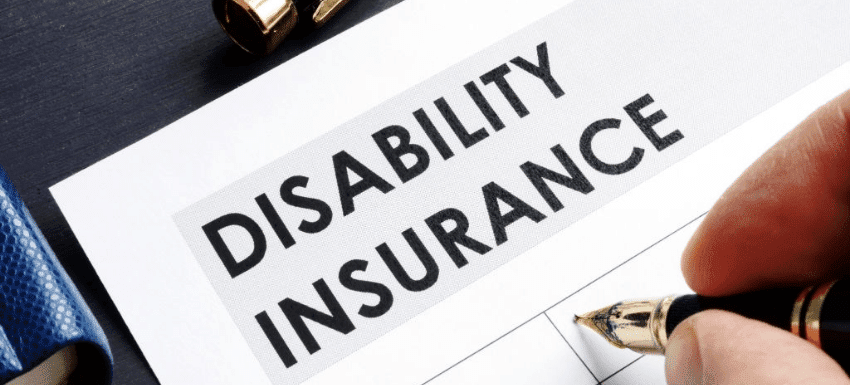
A growing body of evidence suggests we can extend our lifespans significantly and prevent and even improve some common modern ailments by changing our diet and exercising. We should not ignore the fact that cancer and heart disease are still very serious problems for us today – and we should not ignore the importance of medical advances in treating these diseases as a complement to diet and exercise.
Medical advances have caused Canadians to live longer, so critical illness rates have also increased.
A critical illness is an illness that alters the course of one’s life. The following statistics illustrate the prevalence of critical illnesses in Canada:
- About 1 in 12 Canadians is living with heart disease.
- Approximately 1 in 2 Canadians will be diagnosed with cancer in their lifetime.
- About 741,800 Canadian adults live with the effects of a stroke (that’s the population size of New Brunswick!).
In addition to making better lifestyle choices, Canadians should consider their options for planning for the future. In the event that you were diagnosed with a critical illness, how would you protect your loved ones financially? Can you cover the costs associated with the disease – such as medical care, travel expenses, or a family member’s lost wages? Having critical illness insurance in Canada is essential for planning for the future and having peace of mind today.
So, what is critical illness insurance you may ask?
In Canada, Critical Illness Insurance provides a lump sum payment – a living benefit – if you are diagnosed with a specified illness. You can focus on getting better rather than worrying about finances with critical illness insurance.
This type of insurance covers the costs associated with your illness. There are no restrictions on how you can use the lump sum, so you can spend it however you wish.
If you receive a lump sum payment from critical illness insurance, you can use it to pay for medical care (the Canadian government may not cover all of these expenses), bring in additional help at home while undergoing treatment, replace lost income, and more.
What illnesses are covered by critical illness insurance?

Despite the diversity of critical illness, your insurance policy may not cover all of these diseases/conditions. You may have coverage for different illnesses based on your insurance provider.
7% of critical illness insurance in Canada claims (not all are listed here) include:
- Blindness
- Major organ transplant
- Multiple sclerosis
- Paralysis
- Parkinson’s disease
Nevertheless, many critical illness insurance claims (more than 90%) are generated by cardiac and cancer claims including the following:
- Heart disease (Including Heart Attack, Heart Valve Replacement or Repair, Aortic Surgery, Stroke, Coronary Artery Bypass Surgery)
- Cancer (Including Aplastic Anemia and Benign Brain Tumor)
How does critical illness insurance work exactly?
Certain insurance providers in Canada require you to undergo a medical exam to qualify for critical illness insurance and determine your premiums. Many of these companies cover illnesses for which you pay premiums, but for which you may not want or need coverage. Other insurance providers don’t provide medical options, and may ask eligibility questions without requiring a medical exam (good news if you don’t like needles!).
Your insurance provider will let you know which policies you qualify for after this process. In most cases, critical illness insurance covers conditions like cancer, heart attack, and stroke under one policy. If you have ever suffered from any of these conditions, you may be ineligible.
You can choose whether you want coverage for heart disease, cancer, or both even if you had a pre-existing condition. Your premiums can be much more affordable with these flexible options.
Critical illness insurance requires you to pay premiums throughout the term of the policy. If faced with a critical illness listed under the policy you qualify for, you will receive a lump sum as long as you pay these premiums.
If the insured passes away during his or her survival period, the beneficiary will receive the lump sum if the insured purchased an optional benefit called a Return of Premium upon Death (ROPD). Before a claim can be made, a person must survive for a certain amount of time after being diagnosed with a critical illness.
How can I make a claim?

A physician licensed to practice medicine in Canada and who specializes in your particular illness can diagnose you with a critical illness or disease covered by your plan.
If my claim is approved, when will I receive payment?
Typically, you will receive a lump-sum benefit payment 30 days after your claim has been approved. The money can be spent however you wish, and your critical illness insurance policy terminates once your claim is paid. You are also entitled to receive the entire benefit even if you fully recover.
Additionally, some critical illness insurance policies may allow you to receive a secondary lump sum benefit if you suffer a second critical illness-related event (e.g., heart attack).
Is disability insurance the same as critical illness insurance?
No. A disability insurance policy, also known as “income replacement insurance”, provides a monthly income replacement if you become disabled and can no longer perform the usual duties of your occupation. In general, the benefit is limited to a percentage of your regular income. It ends once you earn an income or no longer meet the contract’s definition of disability.
When a critical illness is diagnosed, critical illness insurance provides a lump sum payment for the full policy benefit. There may be a waiting period for long-term disability policies after the onset of disability, and unlike critical illness benefits, long-term disability benefits may be affected by other income you receive, or by your full recovery from illness.
Factors determining the cost of critical illness coverage
Insurers determine how much you will have to pay for critical illness insurance based on a few factors. Insurance costs usually depend on your age, medical condition, the amount of coverage, and the number of illnesses covered by the policy.
You may dismiss the idea of getting a critical illness while you’re young and healthy, but waiting could be costly. Getting critical illness insurance in Canada is easier to obtain when you’re younger and healthier.
You may have a difficult time qualifying or your premiums may be higher if you do it later. The cost of premiums and your ability to qualify change with the state of your health. The cost of health insurance rises as you age because the chances of getting ill increase.
Changing the health conditions of your parents and siblings can also affect your premiums. As an example, if a member of your immediate family has cancer, this could increase your premiums since you are more likely to suffer from a similar condition.
How much coverage do you need?
Your coverage needs are determined by your lifestyle, expenses, and financial obligations. Consider how much you would lose in income if you were unable to work because of a critical illness when deciding how much coverage you need.
In the event of a temporary loss of income and expenses to cover, this financial security can provide tremendous comfort during a stressful time.
Is it really worth buying critical illness insurance?

Medical technology is improving, but it is still better to be prepared in case you are diagnosed with a critical illness.
In the event of an unexpected illness, such as cancer, heart disease, or stroke, how would you and your family cope?
As recovery times can be unpredictable, relying on work benefits or Employment Insurance may not be enough. Disability Insurance won’t cover you if you are able to work, and your work benefits may be capped. Furthermore, Employment Insurance can only cover you for a maximum of 15 weeks, depending on where you live. To get through this difficult time, you may need additional financial assistance.
If you are unable to work because of a critical illness, you may need to replace your salary through other means to maintain your living standards. Having critical illness insurance is probably a good idea if your family depends on your income.
Critical illness insurance is designed with a deep understanding of how financial planning can ease stress during a difficult time in life. You will be protected if you are diagnosed with a critical illness if you purchase critical illness insurance.
Is critical illness insurance right for you?
An important aspect of your overall financial planning is Critical Illness Insurance. However, this is only one of the pieces of the puzzle; you should still consider purchasing life insurance to ensure your loved ones are completely protected.
Is it better to have critical illness coverage or disability insurance?

Neither better nor worse, disability insurance is a different type of coverage. Critical illness insurance pays a lump sum in the event of a sudden, severe illness such as a heart attack, whereas disability insurance provides a portion of your income if you become disabled and are unable to work.
A disability insurance policy covers a much broader range of reasons why an individual is unable to work, such as mental health issues and chronic pain. Even if you are unable to work, you can still live a similar lifestyle.
There are a few severe illnesses covered by critical illness insurance, including cancer and heart attacks. In the short term, it will help you pay for major expenses while you focus on getting well and getting back to work.
Let’s say you’re considering buying insurance because you’re concerned about Covid-19 or other common infectious diseases. If that’s the case, disability insurance makes more sense since critical illness insurance will only cover a limited number of illnesses.
Benefits of critical illness insurance
There is much more at stake than your health when you suffer from a critical illness. It can deplete your savings or, worse, force you into bankruptcy.
An unexpected medical expense can put a lot of strain on your finances. Even with a health insurance policy, out-of-pocket costs and other expenses can drain your savings. This is where critical illness insurance comes in. You can use it to weather a crisis without exhausting your emergency fund.
When you are diagnosed with a covered critical illness, the insurance company pays you a lump-sum amount.
Alternatives to critical illness insurance
A critical illness policy is a type of supplemental insurance. People with specific needs may find it useful, but it is not suitable for everyone. Smart alternatives to critical illness include:
- No supplemental insurance
In the case of young, healthy individuals with a robust personal health insurance plan, supplemental insurance is unnecessary.
- Cancer-only insurance
In Canada, cancer is the leading cause of death, accounting for roughly 218 deaths per 10,000 people. You may want to consider cancer-only insurance if you’re concerned about the costs of cancer treatment. Having said that, keep in mind that it is not meant to replace traditional health insurance. Instead, it fills in the gaps that the latter may not.
- Combined policies
It is possible to bundle critical illness with another insurance product, such as life insurance. For those who would rather pay one premium rather than pay separately for multiple policies, this may be a good option.
Could I not just rely on an emergency fund?
Yes, you could. You may decide that an emergency fund is sufficient as an alternative to critical illness insurance if you have an excellent emergency fund saved up. However, self-insurance does have some limitations:
- You may need to use your emergency fund for something else. Using up your savings after losing your job could leave you unprepared for a critical illness. When you pay your premiums, insurance ensures your coverage.
- You may need more than you have saved. Three months of salary is a recommended emergency fund. Canada’s average individual hasn’t saved that much, and even those who have will need more to cover a critical illness.
- The cost of insurance is lower. The purpose of insurance is to pay for major, unexpected expenses that would otherwise be unaffordable. While you could use your emergency fund to repair your car after getting rear-ended, it’s much more affordable if you carry collision coverage and let your insurance company handle those costs. The same is true for critical illness insurance.
- Insurance is immediate. Saving an emergency fund takes time, but it is highly recommended. If you purchase critical illness insurance, your coverage begins right away (there may be a short waiting period of around 90 days). It won’t matter if you fall ill in the first year of your policy or a decade from now.
The Bottom Line
Critical illness insurance is a great way to protect yourself from the financial implications of becoming suddenly and severely ill. Young and healthy individuals who would be unable to maintain their home and family if they fell ill may find critical illness insurance valuable.
Alternatively, if you’re at a higher risk and your financial situation is more stable, this type of insurance may not be necessary.
Ultimately, the choice is up to you.
Which is the best life insurance policy for me?
The answer to this question isn’t found in the back of the book. Life insurance is a deeply personal purchase and there are many factors to consider. In addition to considering your current family’s financial needs, you should also account for future expenses like tuition, funeral arrangements, estate taxes, and any other debts you would like settled if you died. (If that sounds complicated, there are insurance calculators). When you search for insurance quotes, there are a multitude of options to choose from. Nevertheless, you should only purchase a policy you can afford, which makes sense for you and your family.
Thankfully, AG Group Enterprise Ltd, is here to help! Our mission at AG Group is to provide a wide range of life insurance policies, including term coverage, permanent coverage, RRSPs, RESPs, and more!
With AG group’s insurance policies, you can protect the future of your family and your finances. A good policy ensures a bright future!



